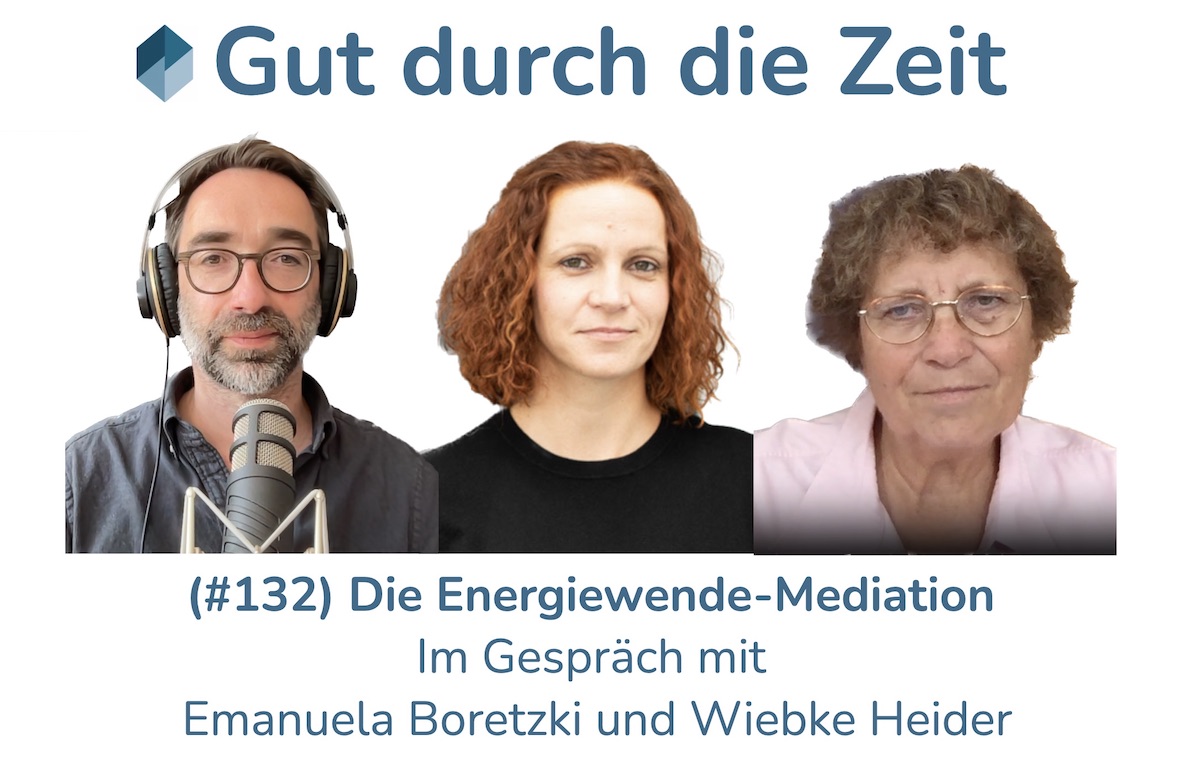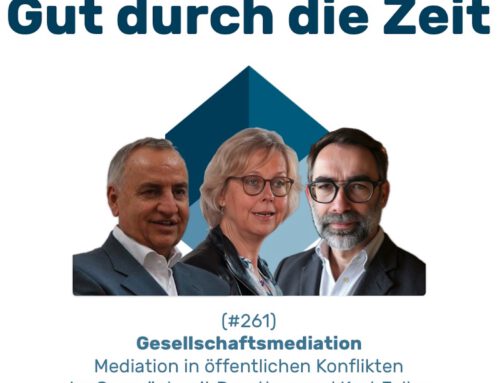INKOVEMA Podcast „Well through time“
#132 – The energy transition mediation
Why energy transition and infrastructure project mediation requires informed and, in some cases, trained participants. In conversation with Emanuela Boretzki and Wiebke Heider
Well through time. The podcast about mediation, conflict coaching and organisational consulting.
Emanuela BoretzkiDipl.-Ing. Landscape Architecture and Environmental Planning (FH): Environmental construction supervision, dialogue procedures in business and construction, management training (IHK).
Wiebke HeiderMediator BM®, graduate in business administration (FH), conflict coach, moderator Specialising in: Agriculture, citizen participation, regional development, nature conservation, associations, tourism.
Contents:
Mediation in conflicts during the energy transition
Good conflict management plays a key role in a successful energy transition in Germany. I spoke to Emanuela Boretzki and Wiebke Heider, who act as energy transition mediators, about the lines of conflict and areas of tension in their work.
The energy transition in Germany is an important social and legally enshrined goal. However, complex conflicts are unavoidable along the way, especially when it comes to protecting nature and the interests of communities and landowners. In such cases, mediators can play a valuable role in mediating and finding solutions that meet the needs of all parties involved. This is increasingly happening.
Conflict line 1: Energy transition versus nature conservation
The switch to renewable energies often goes hand in hand with the installation of wind or solar power plants. Although these technologies help to reduce greenhouse gas emissions, they can also have a negative impact on the environment. Many projects face the challenge of finding a balance between renewable energy production and the protection of sensitive ecosystems such as bird routes or habitats of endangered species. Mediators can help to understand the concerns of nature conservation organisations, citizens' initiatives and energy companies and create compromises that ensure the preservation of nature and at the same time drive forward the energy transition.
Conflict 2: Property owner versus municipality
Another conflict arises when landowners are asked to make their land available for the construction of wind turbines or ground-mounted photovoltaic systems, for example. While the municipalities are convinced of the ecological and economic benefits of such projects, owners may resist the use of their land for various reasons. This often involves questions of compensation, damage to the landscape or potential effects on the quality of life. Mediators are used in these constellations to mitigate conflicts of interest by supporting the exchange of information and the search for fair and balanced solutions.
Conflict 3: Citizen participation and co-determination
Projects related to the energy transition often give rise to conflict between municipalities and citizens. Citizens may not feel sufficiently involved in decision-making processes or have concerns about the impact on their living environment. Conflicts also arise in the course of private lease agreements, which sometimes bring in a lot of money for one member of the community, but the entire community has to live with the consequences (of a wind turbine, for example). Mediators can help to promote dialogue between citizens, communities and project developers in order to ensure effective public participation and take into account the needs and concerns of the affected communities.
The energy transition is a complex and challenging task for everyone that is accompanied by various conflicts.





Leave A Comment